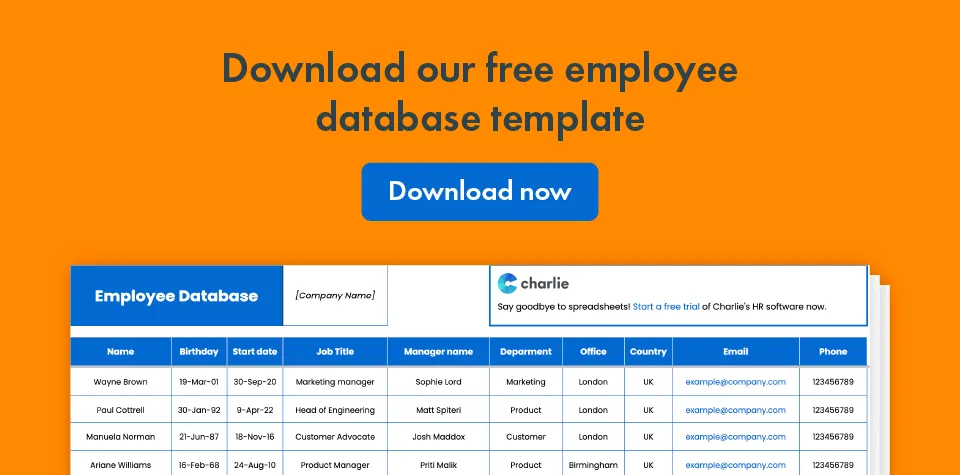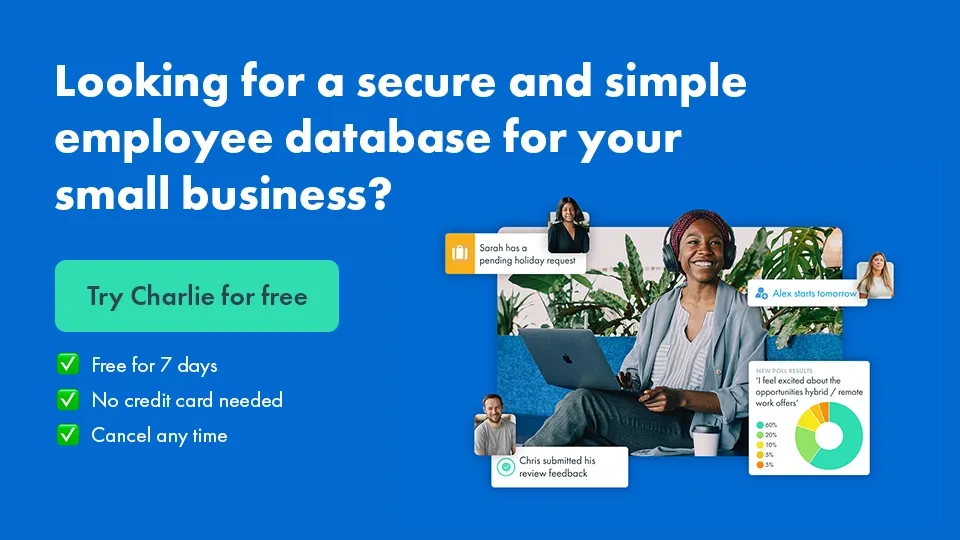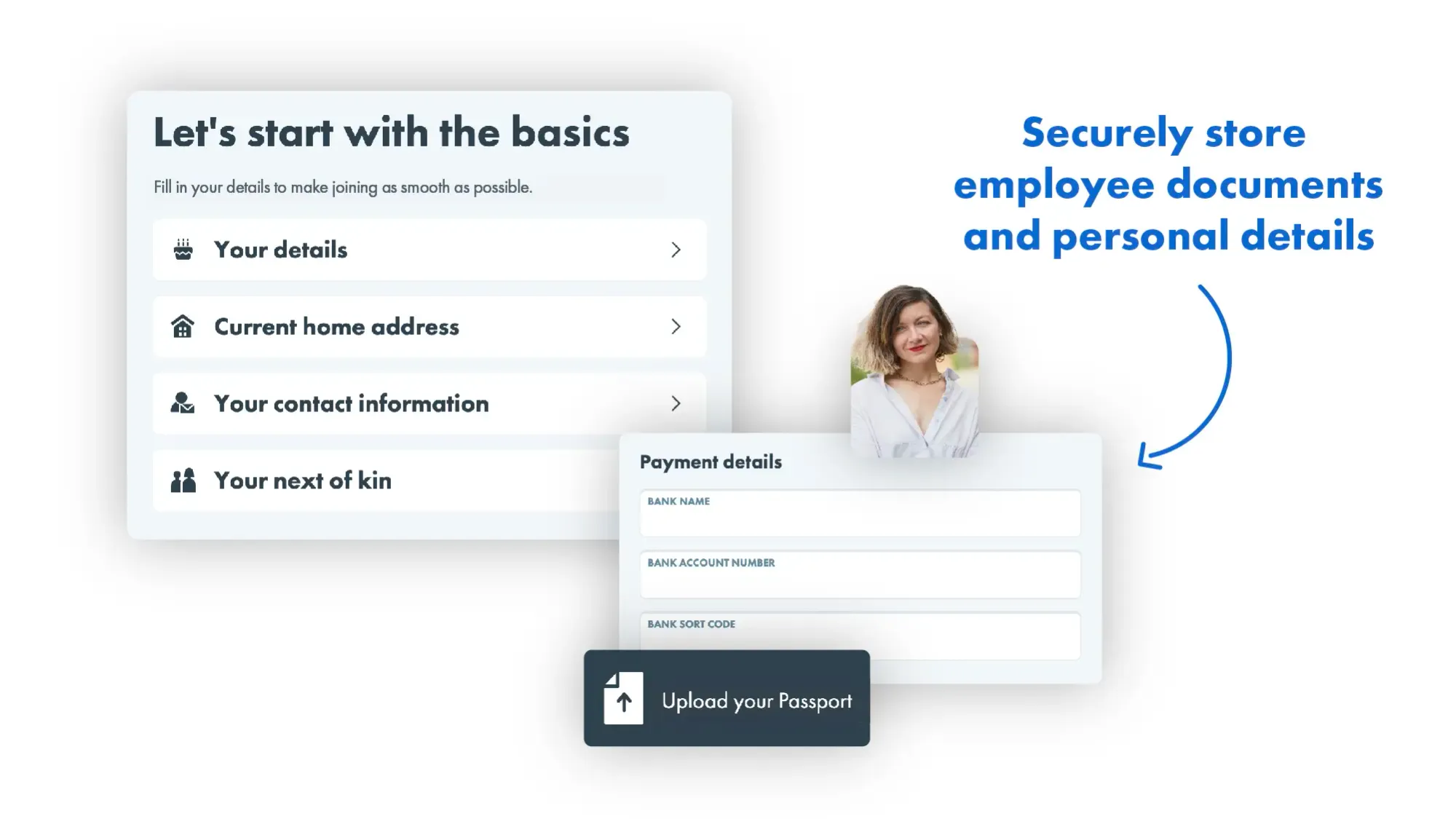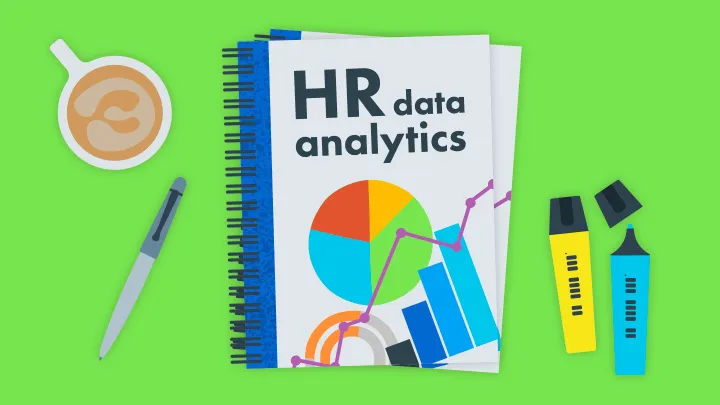Why you need an employee database (with free Excel template)

An employee database is essential for businesses big and small, as it’s where you keep all the important information about your team.
Employee databases, also known as HR databases, come in various different formats — paper, Excel files, or employee database software, for example.
The format you choose should fit the needs, size, and ambition of your business. And your employee database should be secure, easy to access, and quick to update.
If you’re looking to store your employee data in an Excel file, use our free employee database Excel template.
The data columns in the employee database template are pre-populated, so you just need to make a copy of it, add the information for each employee and download it as an Excel sheet:

As the owner or person responsible for HR at your small business, it’s likely that you’ve experienced the following obstacles when trying to manage your employee database:
- A lack of time - there are so many other jobs you could and should be doing. Despite your best intentions, updating the employee database spreadsheet often falls to the bottom of your to-do list.
- Where to store and how to organise it - figuring out where and how to store employee data securely can be a headache. You’ve got to find a reliable, organised and affordable way to store and file information about your employees (check out our guide about HR document management software)
- Confidentiality and data privacy - whether paper or digital, employee records contain sensitive personal and financial data. Ensuring and maintaining their confidentiality and privacy may mean putting in place strong, and potentially costly, security measures. It's also important that you understand how long you should keep employee records for.
For these reasons and more, we’re going to look at employee databases in more depth and identify the best solution for your small business.
After all, a good employee database is one you hardly notice.
It should store your employee data securely, be easy to access and simple to update. And it certainly shouldn’t be causing you hassle and headaches.
Which is why more and more small businesses are moving away from spreadsheets for keeping employee records, and using employee database software instead.

What is an employee database?
An employee database is a central place to store data analytics about the employees at your business.
The information held in an employee database is a mix of work-related and personal. So your employee database should contain standard (date of birth, address, emergency contacts etc.) as well as business-specific (job title, rate of pay, department, line manager etc.) data for every member of your team.
And if you use HR software, you’ll likely also store other useful data like performance reviews in your employee database.
Why do you need an employee database?
A good employee database is essential for a small business. It’s a vital HR tool for safely storing and managing your employee data.
Without an employee database, it’s difficult (not to mention frustrating and time-consuming) to locate information when you need it. An employee database keeps all the data relating to your team in one safe and accessible place.
Plus, with employee database software like Charlie, you can onboard your team members and track their performance through the same system.
What details should you include in an employee database?
The information held in an employee database will vary from business to business, but there’s universal information that’s applicable across the board:
- Name
- Date of birth
- Residential address
- Phone number(s)
- Email address
- Start date
- Role / position
- Department and line manager
- Salary / rate of pay
In addition to this essential information, the data you keep on file may depend on the format of your employee database, and what it enables you to record and safely store.
For more information, have a look at our employee details form to help.
Why spreadsheets may not be the best solution for your employee database…
Despite their traditional popularity, Excel spreadsheets are not the best solution for employee databases or for small businesses. Here’s why…
1. You have to update them manually
Regardless of your business, changes to employee data are a given. People move house, change roles, or leave for other jobs, and new team members come on board.
If you have to manually update the database every time something changes for one or more of your employees, it’s going to become a headache very quickly.
Plus, an annual review of your employee database is HR best practice, and that will have to be done manually as well.
2. You’re still the bottleneck for any updates
To ensure data privacy and confidentiality, updates to the spreadsheet have to go through the person responsible for HR. So your database-related task list never gets any lighter.
But with employee database software like Charlie, employees are responsible for updating their own information. And data updates are permanently removed from your task list!
3. They’re prone to errors
Mistakes on spreadsheets are common, so they’re as likely on an Excel file of employee data as they are anywhere else.
4. They’re not secure
Spreadsheets (and shared drives) do not comply with employment law as they’re not secure enough. This is because of the lack of security around permission settings and the risk of data breaches.
Ultimately, spreadsheets were never designed for storing the sort of confidential information recorded in an employee database.
5. They’re unsustainable for a growing team
The more your team grows, the more it will exacerbate the problems above.
For a secure, effective, and easy-to-use employee database, you need a better solution than a spreadsheet.
Why HR software like Charlie is a better solution for your employee database…
Q: If spreadsheets aren’t the best solution for employee databases, then what is?
A. Employee database software like Charlie!
And here’s why:
- Charlie is designed to collect and store all data required by law, so there’s no chance of forgetting something vital and you’ll always be in compliance.
- Employees are responsible for uploading their own information because the system is ‘self service’. All you need to do is enter an employee’s name and email address — Charlie automates the rest.
- Information can be accessed and updated anytime, anywhere, in just a few clicks.
- You’ll save hours of admin time onboarding every new employee.
And Charlie’s also got your back when it comes to data security:
- The software is fully GDPR-compliant and ISO 27001-accredited.
- You can set permissions in Charlie to decide who can and can’t see your employee data.
- When someone leaves the team, Charlie archives records instead of deleting them. So you can still access the data if you need to. And if you need to permanently delete any employee data, then you can do that safely through Charlie as well.

But don’t just take my word for it…
Try Charlie for free for 7 days and see how easy, safe and effective it is for storing your employee data. You can compare it directly with the employee database Excel template and see which is the best fit for your business.
Go on, you’ve got nothing to lose… Except the headaches!



